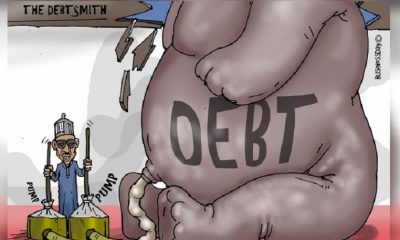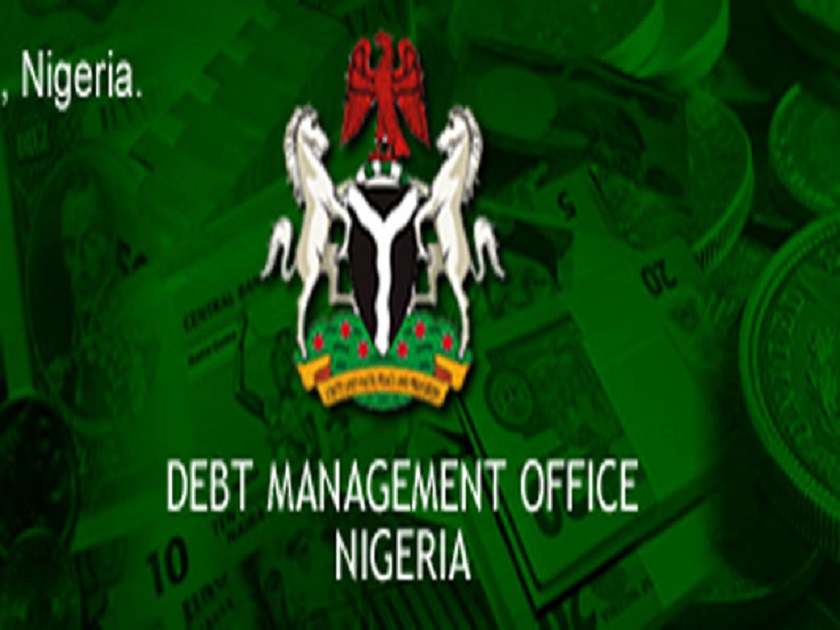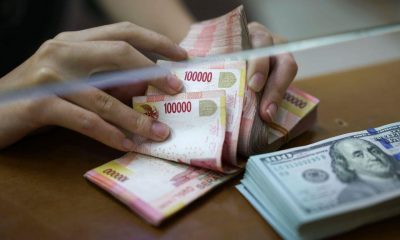Economy
DMO Sets Limit For FG’s Borrowing Plan in 2017
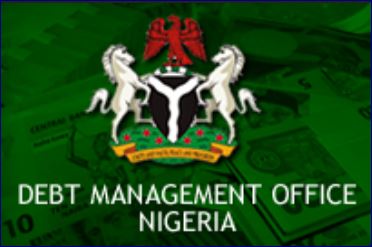
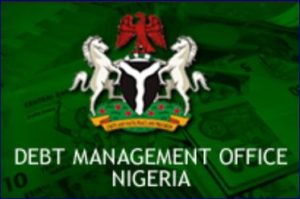
By Modupe Gbadeyanka
The Debt Management Office (DMO) has fixed the maximum limit of loan amount, both domestic and external, the federal government could contract in the fiscal year 2017 at $22.08 billion (about N6.4 trillion), ThisDay is reporting.
According to the office, for 2017, new domestic borrowing has been pegged at $5.52 billion (about N1.6 trillion); and, new external Borrowing: $16.56 billion (about N4.8 trillion).
This limit is part of the key policy recommendations of the 2016 Debt Sustainability Analysis exercise conducted by DMO, the report of which was obtained by THISDAY.
The report titled, 2016 Report of the Annual National Debt Sustainability Analysis, explained that, “the end-period net present value (NPV) of total public debt-to-GDP ratio for 2016 for the federal government is projected at 13.5 per cent and given the country-specific threshold of 19.39 per cent for NPV of total public debt-to-GDP ratio (up to 2017), the borrowing space available is 5.89 per cent of the estimated GDP of $374.95 billion for 2017.”
As a result of this, DMO put the maximum amount that could be borrowed (domestic and external) by the federal government in 2017 ‘without violating the country-specific threshold’ at $22.08 billion, representing. 5.89 per cent of the GDP.
The office noted that these amounts were recommended maximum that could be borrowed, “taking into account the absorptive capacity of the domestic debt market, and the options available in the external market.”
It expected that “such external borrowings, which would be long-term (minimum 15 years), would be strategically deployed to fund priority infrastructure projects, that would boost output, and put the economy on the path of sustainable recovery and growth.”
“It is further expected that the long maturity profile of such loans would enable the economy to be sufficiently diversified for increased export earnings for ease of debt service payments.”
The DMO report noted that, “The Debt Management Strategy, 2016-2019, provides for the rebalancing of the debt portfolio from its composition of 84:16 as at end-December, 2015, to an optimal composition of 60:40 by end-December, 2019 for domestic to external debts, respectively.”
“It supports the use of more external finance for funding capital projects, in line with the focus of the present administration on speeding up infrastructural development in the country, by substituting the relatively expensive domestic borrowing in favour of cheaper external financing. This policy stance has been reinforced by the recent deterioration in macroeconomic variables, particularly with respect to the rising cost of domestic borrowing.
“Hence, the shift of emphasis to external borrowing would help to reduce debt service burden in the short to medium-term and further create more borrowing space for the private sector in the domestic market,” the DMO explained.
Also, as part of the recommendation of the DSA exercise, the DMO expressed “the urgent need for the Government to formulate an Economic Blueprint or Road-Map for the medium-term.
According to the office, “Aside from addressing the current challenges, it would go a long way to engender confidence in both local and international investors on the way forward. This has become very imperative, given that investor perception of a country’s outlook is critical to its economic recovery.”
The DMO also advised the Federal Government to “sustain the on-going reforms and initiatives in the various key sectors of the economy, including: agriculture, education, housing, power, and transportation, as this would foster the needed inclusive economic growth and development.”
Similarly, the debt management agency, pointed out that, “In view of the continued deterioration in Government’s revenue, occasioned by the drastic fall in the price of oil, Government should reinforce its initiatives aimed at diversifying the productive base of the economy and, thus, improve the nonoil revenue receipts.”
“Accordingly, concrete and urgent steps should be taken to broaden the tax base and improve efficiency in tax administration and collection. vii. Given the country’s huge infrastructural needs, the Government is encouraged to sustain the policy of allocating a minimum of 30 per cent of Federal Government’s budget to capital investments, as well as ensuring judicious utilisation of such funds for infrastructure development.”
Besides, it also said, “In view of the adverse effect on the economy of the recurring delays in budget formulation and passage, there is the need for the Government to ensure strict adherence to the annual budget calendar, so as to facilitate growth recovery, reduce fiscal slippages and delays in budget implementation.”
“The passage of the Petroleum Industry Bill (PIB) by the National Assembly is long overdue and should be given speedy attention by the authorities. Its passage is expected to liberalise the oil and gas sector, and thus, attract more investments into the sector, which will have positive multiplier effect on the economy.
“Given that in the short to medium-term, oil would still remain a key revenue earner of the nation, the Federal Government is encouraged to continue on its efforts to curtail crude oil production disruptions in the oil producing areas.
“In view of the country’s huge infrastructure requirements, the Federal Government is enjoined to creatively explore other alternative and viable sources of financing,” the DSA report also recommended.
Economy
Tinubu Okays Extension of Ban on Raw Shea Nut Export by One Year

By Aduragbemi Omiyale
The ban on the export of raw shea nuts from Nigeria has been extended by one year by President Bola Tinubu.
A statement from the Special Adviser to the President on Information and Strategy, Mr Bayo Onanuga, on Wednesday disclosed that the ban is now till February 25, 2027.
It was emphasised that this decision underscores the administration’s commitment to advancing industrial development, strengthening domestic value addition, and supporting the objectives of the Renewed Hope Agenda.
The ban aims to deepen processing capacity within Nigeria, enhance livelihoods in shea-producing communities, and promote the growth of Nigerian exports anchored on value-added products, the statement noted.
To further these objectives, President Tinubu has authorised the two Ministers of the Federal Ministry of Industry, Trade and Investment, and the Presidential Food Security Coordination Unit (PFSCU), to coordinate the implementation of a unified, evidence-based national framework that aligns industrialisation, trade, and investment priorities across the shea nut value chain.
He also approved the adoption of an export framework established by the Nigerian Commodity Exchange (NCX) and the withdrawal of all waivers allowing the direct export of raw shea nuts.
The President directed that any excess supply of raw shea nuts should be exported exclusively through the NCX framework, in accordance with the approved guidelines.
Additionally, he directed the Federal Ministry of Finance to provide access to a dedicated NESS Support Window to enable the Federal Ministry of Industry, Trade and Investment to pilot a Livelihood Finance Mechanism to strengthen production and processing capacity.
Shea nuts, the oil-rich fruits from the shea tree common in the Savanna belt of Nigeria, are the raw material for shea butter, renowned for its moisturising, anti-inflammatory, and antioxidant properties. The extracted butter is a principal ingredient in cosmetics for skin and hair, as well as in edible cooking oil. The Federal Government encourages processing shea nuts into butter locally, as butter fetches between 10 and 20 times the price of the raw nuts.
The federal government said it remains committed to policies that promote inclusive growth, local manufacturing and position Nigeria as a competitive participant in global agricultural value chains.
Economy
NASD Bourse Rebounds as Unlisted Security Index Rises 1.27%

By Adedapo Adesanya
The NASD Over-the-Counter (OTC) Securities Exchange expanded for the first session this week by 1.27 per cent on Wednesday, February 25.
This lifted the NASD Unlisted Security Index (NSI) above 4,000 points, with a 50.45-point addition to close at 4,025.25 points compared with the previous day’s 3,974.80 points, as the market capitalisation added N30.19 billion to close at N2.408 trillion versus Tuesday’s N2.378 trillion.
At the trading session, FrieslandCampina Wamco Nigeria Plc grew by N5.00 to trade at N100.00 per share compared with the previous day’s N95.00 per share, Central Securities Clearing System (CSCS) Plc improved by N4.18 to sell at N70.00 per unit versus N65.82 per unit, and First Trust Mortgage Bank Plc increased by 14 Kobo to trade at N1.59 per share compared with the previous day’s N1.45 per share.
However, the share price of Geo-Fluids Plc depreciated by 27 Kobo at midweek to close at N3.27 per unit, in contrast to the N3.30 per unit it was transacted a day earlier.
At the midweek session, the volume of securities went down by 25.3 per cent to 8.7 million units from 11.6 million units, the value of securities decreased by 92.5 per cent to N80.7 million from N1.2 billion, and the number of deals slipped by 33.3 per cent to 32 deals from the preceding session’s 48 deals.
At the close of business, CSCS Plc remained the most traded stock by value on a year-to-date basis with 34.1 million units exchanged for N2.0 billion, trailed by Okitipupa Plc with 6.3 million units traded for N1.1 billion, and Geo-Fluids Plc with 122.0 million units valued at N478.0 million.
Resourcery Plc ended the trading session as the most traded stock by volume on a year-to-date basis with 1.05 billion units valued at N408.7 million, followed by Geo-Fluids Plc with 122.0 million units sold for N478.0 million, and CSCS Plc with 34.1 million units worth N2.0 billion.
Economy
Investors Lose N73bn as Bears Tighten Grip on Stock Exchange

By Dipo Olowookere
The bears consolidated their dominance on the Nigerian Exchange (NGX) Limited on Wednesday, inflicting an additional 0.09 per cent cut on the market.
At midweek, the market capitalisation of the domestic stock exchange went down by N73 billion to N124.754 trillion from the preceding day’s N124.827 trillion, and the All-Share Index (ASI) slipped by 114.32 points to 194,370.20 points from 194,484.52 points.
A look at the sectoral performance showed that only the consumer goods index closed in green, gaining 1.19 per cent due to buying pressure.
However, sustained profit-taking weakened the insurance space by 3.79 per cent, the banking index slumped by 2.07 per cent, the energy counter went down by 0.24 per cent, and the industrial goods sector shrank by 0.22 per cent.
Business Post reports that 25 equities ended on the gainers’ chart, and 54 equities finished on the losers’ table, representing a negative market breadth index and weak investor sentiment.
RT Briscoe lost 10.00 per cent to sell for N10.35, ABC Transport crashed by 10.00 per cent to N6.75, SAHCO depreciated by 9.98 per cent to N139.35, Haldane McCall gave up 9.93 per cent to trade at N3.99, and Vitafoam Nigeria decreased by 9.93 per cent to N112.50.
Conversely, Jaiz Bank gained 9.95 per cent to settle at N14.03, Okomu Oil appreciated by 9.93 per cent to N1,765.00, Trans-nationwide Express chalked up 9.77 per cent to close at N2.36, Fortis Global Insurance moved up by 9.72 per cent to 79 Kobo, and Champion Breweries rose by 5.39 per cent to N17.60.
Yesterday, 1.4 billion shares worth N46.2 billion were transacted in 70,222 deals compared with the 1.1 billion shares valued at N53.4 billion traded in 72,218 deals a day earlier, implying a rise in the trading volume by 27.27 per cent, and a decline in the trading value and number of deals by 13.48 per cent and 2.76 per cent, respectively.
Fortis Global Insurance ended the session as the busiest stock after trading 193.7 million units for N152.7 million, Zenith Bank transacted 120.7 million units worth N11.1 billion, Japaul exchanged 114.8 million units valued at N407.0 million, Ellah Lakes sold 98.4 million units worth N999.2 million, and Access Holdings traded 63.1 million units valued at N1.7 billion.
-

 Feature/OPED6 years ago
Feature/OPED6 years agoDavos was Different this year
-
Travel/Tourism10 years ago
Lagos Seals Western Lodge Hotel In Ikorodu
-

 Showbiz3 years ago
Showbiz3 years agoEstranged Lover Releases Videos of Empress Njamah Bathing
-

 Banking8 years ago
Banking8 years agoSort Codes of GTBank Branches in Nigeria
-

 Economy3 years ago
Economy3 years agoSubsidy Removal: CNG at N130 Per Litre Cheaper Than Petrol—IPMAN
-

 Banking3 years ago
Banking3 years agoSort Codes of UBA Branches in Nigeria
-

 Banking3 years ago
Banking3 years agoFirst Bank Announces Planned Downtime
-

 Sports3 years ago
Sports3 years agoHighest Paid Nigerian Footballer – How Much Do Nigerian Footballers Earn





